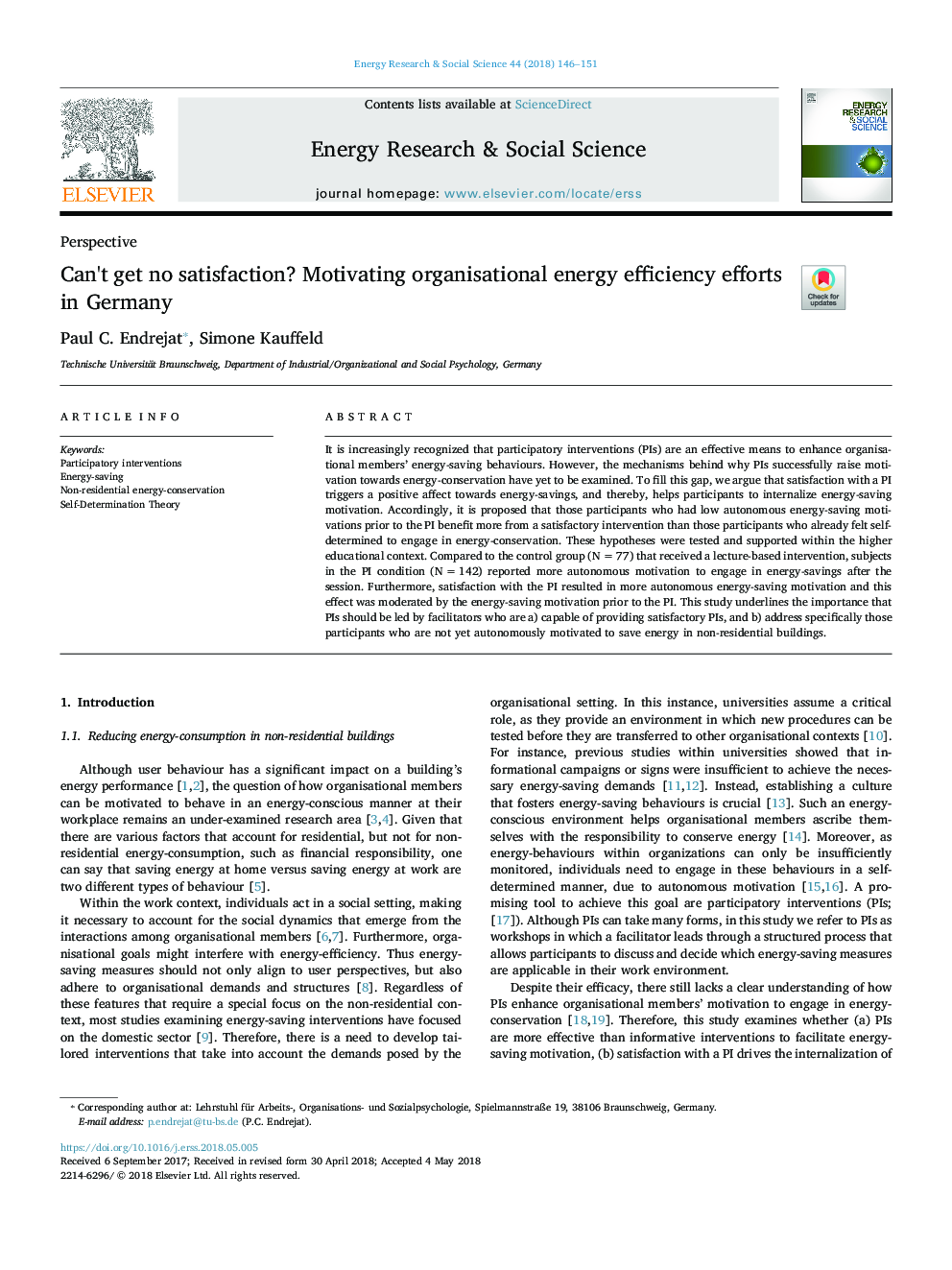| Article ID | Journal | Published Year | Pages | File Type |
|---|---|---|---|---|
| 6557136 | Energy Research & Social Science | 2018 | 6 Pages |
Abstract
It is increasingly recognized that participatory interventions (PIs) are an effective means to enhance organisational members' energy-saving behaviours. However, the mechanisms behind why PIs successfully raise motivation towards energy-conservation have yet to be examined. To fill this gap, we argue that satisfaction with a PI triggers a positive affect towards energy-savings, and thereby, helps participants to internalize energy-saving motivation. Accordingly, it is proposed that those participants who had low autonomous energy-saving motivations prior to the PI benefit more from a satisfactory intervention than those participants who already felt self-determined to engage in energy-conservation. These hypotheses were tested and supported within the higher educational context. Compared to the control group (Nâ¯=â¯77) that received a lecture-based intervention, subjects in the PI condition (Nâ¯=â¯142) reported more autonomous motivation to engage in energy-savings after the session. Furthermore, satisfaction with the PI resulted in more autonomous energy-saving motivation and this effect was moderated by the energy-saving motivation prior to the PI. This study underlines the importance that PIs should be led by facilitators who are a) capable of providing satisfactory PIs, and b) address specifically those participants who are not yet autonomously motivated to save energy in non-residential buildings.
Related Topics
Physical Sciences and Engineering
Energy
Energy (General)
Authors
Paul C. Endrejat, Simone Kauffeld,
